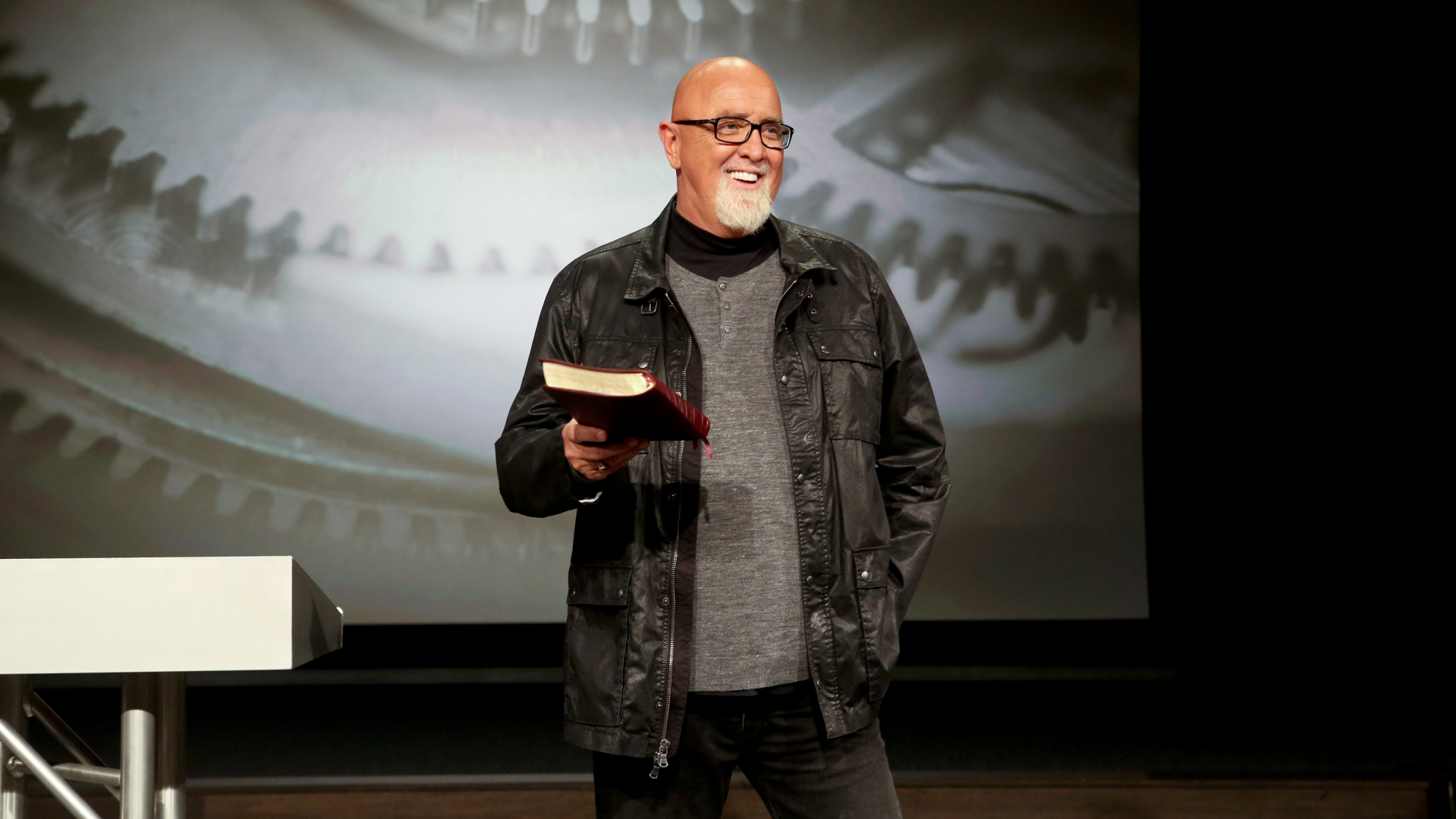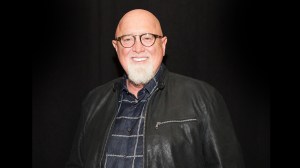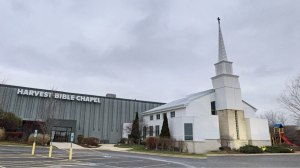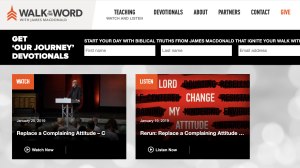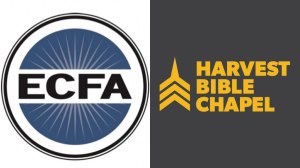In this series

In an investigation published by World magazine yesterday, former Harvest Bible Chapel leaders raise concerns over the Chicago-area megachurch’s operations, including claims of shuffling funds between related ministries and efforts to restrict former staff through noncompete clauses and nondisclosure agreements.
Harvest officials said in a statement to CT that the report “fails to uncover desired scandal” and represents “the opinions of a few disgruntled former members” rather than the views of the church’s current elders.
In October, Harvest along with lead pastor James MacDonald filed a defamation lawsuit against the author of the World article, Julie Roys, for “asserting false allegations” during her eight-month investigation.
In this week’s “Hard times at Harvest” article, Roys follows up with a trio of former Harvest elders who had a falling out with the church in 2013. MacDonald issued an apology over their “unbiblical discipline” in 2014.
Leaders stated today that Harvest “has owned its mistakes and endured to become a happier and healthier church” since.
“Subsequent to the most vocal departures, the Elders of [Harvest] designed a system of Elder government filled with meaningful accountability for staff and active involvement of volunteer Elders that exceeds in every way the former system filled with conflicts of interest and poor decision making,” they stated.
However, the former elders continue to critique the financial and organizational structures at Harvest, which numbers 13,000 attendees across seven locations.
World reports that Harvest shifted significant funds from MacDonald’s popular radio program, Walk in the Word, and from its former church planting arm, Harvest Bible Fellowship (HBF), for Harvest Bible Chapel operations. In a letter obtained by the magazine, a pastor at a former HBF church plant indicated the 2017 split “occurred because HBF pastors believed Harvest had inappropriately used fellowship funds for its own purposes.”
Harvest previously stated that all of the funds from the fellowship were “utilized solely for church-planting purposes.”
The legality of transferring funds between projects within an umbrella organization depends if they were designated by donors for a particular project—like a building fund, for example—or are unrestricted contributions.
“Moving between restricted funds is a big no-no, and borrowing from restricted funds is a big no-no,” said Frank Sommerville, an attorney and CPA with expertise in church legal issues. “That is an area churches are very loose on generally.”
This week, after visiting the church’s main campus in Rolling Meadows, Illinois, the Evangelical Council for Financial Accountability (ECFA) reported that Harvest “is in full compliance with each of ECFA’s Seven Standards of Responsible Stewardship and remains a member in good standing with ECFA.”
ECFA officials specifically reviewed internal policies around transactions between the church and related ministries, as well as compensation-setting. The former chair of Harvest’s elder board, Robert Jones, told World that ECFA President Dan Busby previously called MacDonald’s salary “unremarkable.”
Bob Langdon, former financial director for HBF, and Alan Tsao, former comptroller at Harvest Bible Chapel, told World that Harvest restricted access to about 20 percent of its budget to a small group of top leaders. According to church bylaws, MacDonald and four or five elders, who make up the executive committee, oversaw the portion of the budget with leaders’ salaries, which was controlled by the church’s chief financial officer.
“The reason you want to divide it up that way is because of privacy concerns,” said Sommerville. “I will say it is unusual in that it’s not the majority [of churches], but this isn’t the first time I’ve seen that happen…. Typically that’s executive compensation shielded from everybody else because they want to protect that individual piece of data from being out and being misused.”
ECFA found Harvest to be in compliance with its requirement that churches with individual salaries over $150,000 authorize a committee to determine compensation “and those participating in the decision-making process may not have any conflict of interest in the decision, whether direct or indirect.”
World also heard from several former Harvest elders and employees who expressed frustration with MacDonald’s leadership and the terms of their departure, noting some “declined to speak on the record, citing nondisclosure and nondisparagement agreements they said Harvest pressured them to sign when they left.”
Sommerville noted that such measures are important for churches, since former employees have access to sensitive information about congregants and other issues. Additionally, when former employees opt to forgo nondisclosure agreements so they may speak out critically, their employers often can’t respond as openly due to their own confidentiality measures, he said. “[So] it becomes a one-side story.”
Though they are considered a legitimate legal tool to protect employers, some have criticized their use among ministries, including churches like Mark Driscoll’s Mars Hill and Steven Furtick’s Elevation Church. “There's been a recent, troubling tendency in churches to use nondisclosure agreements as a condition of severance,” Bob Hyatt wrote for CT Pastors. “Let’s just say that this is neither transparent nor authentic.”
Harvest’s noncompete agreement, which asks pastors to agree not to move to a church within 50 miles of an existing campus, is less common among churches. World shared the story of a former Elgin pastor, R. T. Maldaner, who resigned in January, to plant a church nearby. According to the article:
Harvest executive ministry pastor Jeff Donaldson defended the church’s actions. Donaldson told WORLD that despite “many warnings,” Maldaner had been recruiting Harvest members for his new church, leading to a “small church split.”
Harvest’s response to the December 13 story reads in full:
It is a sad day when once-credible Christian publications consider the opinions of a few disgruntled former members, already rehashed ad nauseam, of greater weight than the carefully expressed viewpoint of a plurality of local church Elders.
Harvest Bible Chapel has owned its mistakes and endured to become a happier and healthier church, whose members recently pledged — financially, in their walk/work for Christ, and in their promise to share Christ with others — at unprecedented levels. The anticipated attack that comes with God’s kingdom moving forward has come, sadly, not from those in the world but from other professing Christians.
We have chosen the high road and refused to engage in public assault on people we once served closely with who just can’t seem to “let it go,” even after all these years. The Elders are privy to many grace-filled private attempts to reconcile, extended in hopes that these unhappy Christians would find peace.
Subsequent to the most vocal departures, the Elders of Harvest Bible Chapel designed a system of Elder government filled with meaningful accountability for staff and active involvement of volunteer Elders that exceeds in every way the former system filled with conflicts of interest and poor decision making.
Let’s remember — we have a godly, talented, dedicated staff with average tenure among top 10 leaders of more than 24 years, and a congregation focused on moving forward in the next 30 years to claim more ground for Christ. We praise God for the many faithful believers who refused to be interviewed for such an obviously biased effort and covet their prayers for our continued growth in grace and effectiveness.
We will continue to “owe no man anything except to love” (Romans 13:8) and direct inquiries to Elder Updates on our website from the respective time periods, mostly 2012 and 2013.

